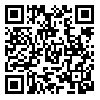2- Payame-Noure University of Tehran
Objective: The goal of this research was to study progress of reading literacy in hearing impaired students by comparing them in three educational degrees.
Materials & Methods: In this analytical and applied research that was a cross–sectional and comparative study, from fourth grade, guidance and high school students of the exceptional schools in Karaj, Shahriar, Shahre Ghods, Hashtgerd and Robat Karim, 119 hearing impaired students were selected conveniently and their reading literacy evaluated by PIRLS (Progress in International Reading Literacy Study) booklets in three components including: reading ability, Informational comprehension and literal comprehension. Data were analyzed by independent t-test.
Results: There were no significant differences between elementary fourth grade and guidance school third grade students with moderate and sever hearing impairment in reading literacy level and informational and literal comprehension texts (P>0.05). Reading literacy level and literal comprehension texts were significantly different between guidance school third grade and high school third grade students with moderate (P=0.004 & P=0.032 respectively) and sever (P=0.011 & P=0.005 respectively) hearing impairment, but informational texts comprehension between these two groups was significantly different only in moderate hearing impaired students (P=0.008).
Conclusion: The reading literacy development in hearing impaired students has a slow progress which is beyond educational degrees and amount of hearing loss. It is necessary to consider the literacy and reading promotion and direction towards the learning and comprehension deep layers in different educational degrees in exceptional educational system.
Received: 5/10/2010 | Accepted: 12/01/2014 | Published: 12/01/2014
| Rights and permissions | |
 |
This work is licensed under a Creative Commons Attribution-NonCommercial 4.0 International License. |


